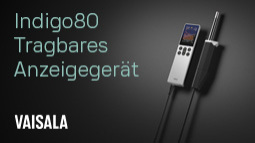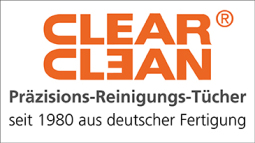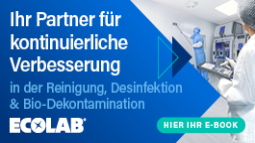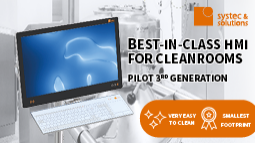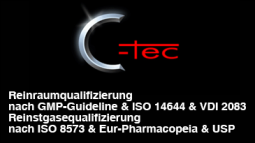Fakuma 2015: Arburg presents itself as system supplier
- Additive manufacturing: freeformer-customised injection-moulded mass-production parts
- Industry 4.0: automated and networked shear production for one-off designs
- Innovative process: Lightweight construction, LSR processing, packaging technology and more
Arburg is to present itself beyond machine technology as a production system supplier for plastic part production at the Fakuma trade fair in Friedrichshafen from 13 to 17 October 2015. Eight allrounders and three freeformers, the ARBURG host computer system ALS and integrated automation will be on view in Hall A3, Stand 3101. Production-efficient applications indicate current industry trends. One highlight is the customisation of mass-production parts by combining injection moulding and additive manufacturing, including integration with Industry 4.0 technologies. Innovative lightweight construction processes, multi-component injection moulding, LSR processing, practical examples for medical and packaging technology and a micro production system round off our trade fair presentation. Another eight allrounders can be found at the stands of our partners.
"We have been working on the subject of Industry 4.0 for some time now. With automated allrounders, the freeformer for additive manufacturing and IT solutions, we are increasingly developing ourselves into a production system supplier for integrated production in the digital factory", stresses Arburg's Managing Partner Juliane Hehl. "In Friedrichshafen we are going to show how mass-production parts can be customised and traced back in a part-specific way in practice using industrial additive manufacturing with the freeformer. The other exhibits at our exhibition stand, every single one of which is a highlight, will also astonish visitors".
Combined: allrounder, freeformer and Industry 4.0
Three freeformers will be on show at Fakuma which produce complex components from common plastic granules without a mould through industrial additive manufacturing, which customise injection-moulded mass-production parts, and which showcase the subject of Industry 4.0.
Exhibition stand visitors can make unique versions of various office scissors, for example. Firstly, an electrical Allrounder 370 E first moulds plastic handles onto the stainless-steel blades, onto which a particular code is then lasered, and optionally customised 2D or 3D lettering is applied with the laser or Freeformer.
A Multilift V robotic system inserts the scissors into the workpiece carrier and transports them out of the production cell via a conveyor belt. A scanner then checks whether the scissors are to be issued to the visitor directly or if 3D lettering made from additive plastic is to be applied using the Freeformer in a further step.
As a première, Arburg is to present a highly flexible automation solution in combination with the Freeformer for the first time at the Fakuma 2015: a six-axis robot mounted on a mobile platform from Kuka designated 'iiwa' (intelligent industrial work assistant) handles automatic loading and unloading of the Freeformer. In addition to its mobility, and the associated high degree of flexibility, the main advantage of this automation is the possibility of direct, autonomous cooperation between human and robot. The robot will hand out the finished, individualised 2D and 3D scissors 'personally' to the visitors at Fakuma.
A second practical example of networked production is provided by a Freeformer enhancing injection-moulded rocker-type light switches with a customised symbol/name combination in large volumes. Here too, the product itself becomes an information carrier with a code applied by laser. All the components for this networked production are supplied by system supplier Arburg.
The Arburg host computer system (ALS) seamlessly documents all relevant process parameters and forwards these to a web server. A web page displaying all the relevant process data can be opened via the unique code using mobile devices. Each individual part can be seamlessly tracked in this way.
Beyond the Industry 4.0 applications, all exhibits at the Arburg exhibition stand are linked via ALS. Visitors can experience the performance of the host computer system, which is optimised for injection moulding operations, with regard to machine and operational data logging 'live' at the stand and also receive advice from experts.
Innovative: the Profoam lightweight construction process
With an innovative application for the automotive industry, Arburg will present the physical foaming of thermoplastics. The innovative Profoam lightweight construction process has been researched and developed together with the Institute for Plastics Processing (IKV). It enables significant material savings in automotive plastic parts and thus a reduction in fleet consumption and CO2 emissions. Due to the reduction in volume and weight, the process also saves cooling time, minimises the occurrence of sink marks, shrinkage and distortion and does not require any additional peripheral devices. Conventional injection moulding machines can be employed in this way and also used for other applications.
The latest stage of development of Profoam will be presented at the Fakuma 2015 on a hydraulic Allrounder 630 S. An injection unit with normal screw geometry is used. The plastic granules are first mixed with motive fluid in a granulate lock between the refill container and material feed. During plastification the propellent is dissolved in the melt and only escapes again when pressure is reduced during the injection process in the form of microcellular 'bubbles'. The result is a light, robust and low-distortion component with homogeneous foam structure. Further advantages of Profoam are the simple process control, the material-friendly melt temperature and the conservation of long fibres when preparing the melt, as the process requires no shear or mixing element in the melt.
Double soft: push-buttons from LSR / LSR compound
An electrical two-component Allrounder 470 A with a clamping force of 1,000 kN, a size 170 injection unit and a second size 30 injection unit in an L-arrangement manufactures buttons for car interiors from liquid silicone rubber (LSR). The diaphragm of the moulded part is manufactured from coloured LSR with a Shore hardness of 50; the inner disc from transparent LSR with a Shore hardness of 80. Because silicones, unlike thermoplastics, do not perish or turn yellow, they enable a particularly pleasant texture and unvarying appearance over the entire life cycle.
The exhibit operates with a 32+32-cavity mould from Trelleborg and an electric rotary unit. The shot weights are especially small at just 2.04 and 0.98 grams. A vertically-operating Multilift V robotic system removes the finished parts from the mould, conducts a visual inspection using a thermal imaging camera and sets them down according to cavity.
Refined manufacture: handles, fruit basket and Y-joint
The fact that hydraulic, hybrid and electrical Allrounder injection moulding machines are suitable for a wide range of uses will be demonstrated at the Fakuma with industry-specific applications.
For example, a hydraulic two-component Allrounder 570 S with a clamping force of 2,000 kN and size 400 and 170 injection units will produce handles for garden saws from 40 percent glass fibre-reinforced PP and haptically appealing TPE. The machine is complemented by a mobile robotic cell. A small Agilus six-axis robot, which moves on an additional linear axis transversely to the machine, removes the finished handles, subjects them to pad printing and then sets them down on a conveyor belt. The flexible automation is characterised by dynamic movements and quick entry into the mould. This results in short cycle times and high productivity.
A hybrid Allrounder 820 H has been specially configured in the "Packaging" version for applications in the packaging industry. The high-speed machine with a clamping force of 3,700 kN and a size 1300 injection unit will produce small folding baskets (175 x 175 x 85 mm) for fruit from PP in a cycle time of around five seconds. IML labels are attached using automation from Campetella. Depending on the requirement, the fruit baskets are set down on different conveyor belts folded together or opened out.
An electrical Allrounder 470 A with a clamping force of 1,000 kN will be on view for the field of medical technology, producing connecting pieces (Y-connectors) for infusion therapy with an 8-cavity mould from Männer. The cycle time is around 15 seconds. The highlight of this application is the side injection through a needle-type shut-off nozzle and the demoulding from three sides of PMMA moulded parts each weighing 1.1 grams. The exhibit has an extended conveyor belt with a tunnel cover for docking with the clean room. By placing the machine and extensive peripheral equipment outside and only transporting the clean, produced parts inside, the clean room can be operated with a high level of cost-effectiveness. A clean-air module with ionisation above the clamping unit ensures the required clean atmosphere (ISO class 7) during series production.
Special: system solution for micro components
Also on view at the Fakuma 2015 will be a micro production system based on an electric Allrounder 270 A, equipped with a new micro injection unit and a compact, horizontal Multilift H 3+1 for the reliable separation of micro component and sprue. A clean-air module with ionisation ensures a constant, controlled production environment and effectively prevents the adhesion of micro components in the working area.
The micro injection unit is specially designed for precision control over short travel strokes in conjunction with high filling dynamics. It combines a choice of 18 or 15-millimetre screw for melting the material with an 8-millimetre screw for the injection. This enables normal granule sizes, and therefore all common materials to be processed problem-free and the smallest shot weights can be achieved precisely and with short travel strokes.
The micro production system manufactures four micro counter wheels in a cycle time of twelve-seconds. Nine components weigh as much as a single granule of PBT material. The specially designed double-armed robot removes the sprue and the delicate 0.004 gram-light micro counter wheels simultaneously and sets them down carefully, separately and according to cavity.
ARBURG GmbH + Co KG
72290 Loßburg
Germany


